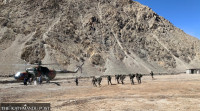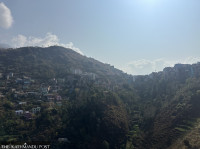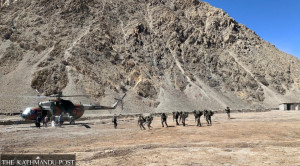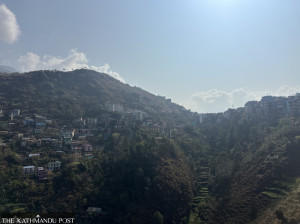Karnali Province
Surgeries affected at Karnali Academy of Health Sciences in lack of a blood bank
Until now, police and army personnel have been donating blood for crucial surgeries.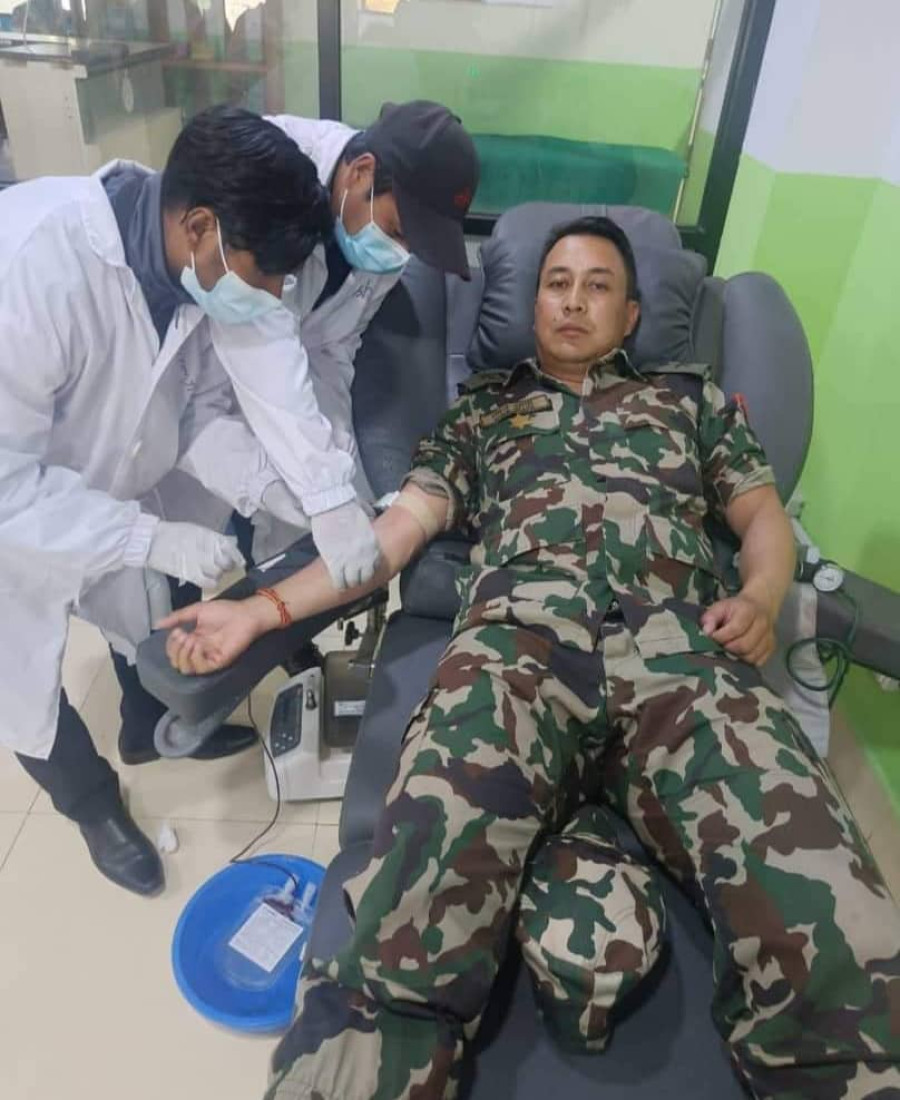
DB Budha
Bachukala Bista of Tatopani Rural Municipality-6, Jumla, visited Karnali Academy of Health Sciences on August 18 after complaining of labour pain. She was brought to the Academy, a major health institution in Karnali Province that runs classes up to postgraduate level in medical sciences, after being referred by the local health post.
Bista gave birth to twins through a Caesarean section.
However, post-delivery Bista suffered from excessive loss of blood. The doctors asked her relatives to arrange two pints of B Positive blood immediately. The family tried to find donors but could not. Finally, two Armed Police Force (APF) officers donated blood.
The mother and her newborns are in stable condition now.
Danta Kami of Hiyakhola in Tatopani-6 was admitted to the Academy last week for the treatment of her lungs. She underwent surgery to remove nearly one kilogram of tumour from her lungs. She too needed a blood transfusion after the major surgery. The medics involved in her treatment urged her family members to arrange for seven pints of blood.
“We didn’t know anyone in the bazaar area as we are from the village. We somehow managed four pints of blood. The security personnel donated an additional three pints,” said Bhakta Kami, Danta’s husband.
Patients with critical injuries and illnesses are rushed to the Karnali Academy of Health Sciences from various districts of Karnali. Like Bista and Kami, the patients who need surgery have a tough time arranging blood as the health institution does not have a blood transfusion centre. The relatives of the patients have no option but to visit the camps of the Nepal Army, Armed Police Force and Nepal Police to arrange blood.
“The army and police personnel are like the blood bank in Jumla. The army and police deploy their personnel for blood donation if a person visits them with a letter from the hospital administration,” said a health worker posted at the Academy.
The Jumla branch of the Nepal Red Cross Society had set up a blood transfusion centre in the district a decade ago. A building was constructed and the centre was run for some time but the service was discontinued due to irregular electricity supply.
“Surgery services were not available in Jumla until the establishment of the Academy in 2011,” Jagadish Chaulagain, the vice chairman of the District Red Cross told the Post. “But they don’t have a blood transfusion centre. The Red Cross blood transfusion centre also had to be closed due to the irregular power supply. The patients’ families have a difficult time managing blood in the last hour.”
The building meant to house the blood transfusion centre is currently being used as an eye treatment centre. The tool and equipment purchased for the blood transfusion lie unused.
According to Dr Pujan Rokaya, director at the Karnali Academy of Health Sciences, the teaching hospital has been carrying out critical surgeries in gynaecology, orthopaedics, paediatrics, ENT (ear, nose and throat), eye, skin and dental departments. “The Academy can store blood up to 200 pints. But it is not enough for a teaching hospital like ours,” said Rokaya. “The doctors and other health workers have to donate blood during medical emergencies. We have to request the army and police personnel for blood when the patients’ attendants are reluctant to donate blood themselves or fail to manage blood,” said Rokaya.




 9.7°C Kathmandu
9.7°C Kathmandu
